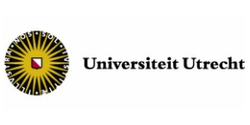PhD: Improving Psychological Treatments for Young People with Depression
Updated: 17 May 2024
Are you enthusiastic about experimental psychopathopology/Computational Psychiatry, advanced quantitative methods and research with clinical impact? Then this PhD position may be a good fit for you.
In this project we will investigate how individual differences in cognitive mechanisms needed for learning from therapy predict success of psychotherapy for depression. Our goal is to optimise treatments for depression by matching individuals to specific therapeutic procedures based on individual learning capacities of depressed people between 18-25 years of age.
Your job
In the position of PhD candidate, you are responsible for conducting research studies (including design, data collection, and data analysis) and publishing about the findings. You will present your findings at national and international conferences, and you will be part of the Postgraduate School for Experimental Psychopathology. You will get to chance to be embedded within a broad international network, including experts in experimental psychopathology, psychometrics and computational psychiatry. The supervisory team for the PhD project comprises Dr Geert-Jan Will, Dr Sanne Bruijniks, Professor Iris Engelhard, and Professor Jaap Denissen. You will be a member of Utrecht’s Experimental Psychopathology lab.
The project has three aims:
- identifying reliable neurocognitive markers that are important for learning from psychotherapy (through combing neurocognitive tasks with computational models of brain and cognition);
- investigating whether individual differences in neurocognitive markers can predict successful learning from distinct psychotherapeutic procedures;
- investigating whether matching depressed individuals to specific psychotherapeutic procedures based on their neurocognitive profiles can improve treatment outcomes (i.e., greater reduction of depressive symptoms).
The primary responsibilities include:
- designing research studies (including stimulus/task development and programming experiments);
- recruitment and collection of human subject data from people with subclinical levels of depression;
- processing and analysing data;
- writing manuscripts for publication;
- writing a dissertation.
Requirements:
You bring the following qualifications:
- a Master's degree in psychology, cognitive science, neuroscience, artificial intelligence, computer science, or related field;
- excellent organisational, interpersonal, and communication skills;
- research experience in psychology or neuroscience (for example from your BSc or MSc thesis, a research internship, or other research-related activities).
Additional highly desired qualifications include:
- affinity with advanced statistical modeling and a programming language such as R, Matlab or Python (or an ambition to learn to code);
- special consideration will be given to individuals with experience in computational modelling or a motivation to learn how to develop computational models of cognition (Important: please do not hesitate to apply if you lack experience with computational modeling, but are eager to learn and develop these skills);
- clinical experience (e.g., a clinical internship, or experience working with vulnerable populations) or affinity with clinical practice.
Salary Benefits:
We offer:
- a position for one year, with an extension to a total of four years upon successful assessment in the first year, and with the specific intent that it results in a doctorate within this period;
- a working week of 38 hours and a gross monthly salary between €2,770 and €3,539 in the case of full-time employment (salary scale P under the Collective Labour Agreement for Dutch Universities (CAO NU));
- 8% holiday pay and 8.3% year-end bonus;
- a pension scheme, partially paid parental leave and flexible terms of employment based on the CAO NU.
In addition to the terms of employment laid down in the CAO NU, Utrecht University has a number of schemes and facilities of its own for employees. This includes schemes facilitating professional development, leave schemes and schemes for sports and cultural activities, as well as discounts on software and other IT products. We also offer access to additional employee benefits through our Terms of Employment Options Model. In this way, we encourage our employees to continue to invest in their growth. For more information, please visit Working at Utrecht University.
36 - 40 hours per week
Heidelberglaan 1

